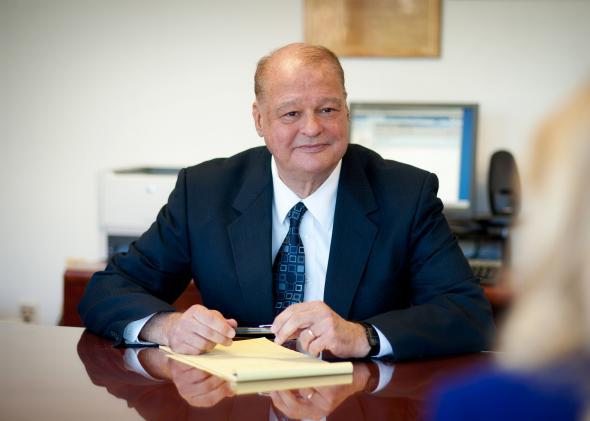One of the great benefits of the marriage equality debate is that it has forced Americans to learn way more about constitutional law than they probably ever wanted to. In just a few years, terms like “heightened scrutiny” and “liberty interest” have wriggled their way into the demotic parlance, to my unceasing delight. But the schooling, it seems, will not end at the 14th Amendment, because Arizona Attorney General Tom Horne just cited a rule of civil procedure in refusing to defend his state’s ban on same-sex marriage. And if his theory is correct, opponents of marriage equality may be procedurally barred from ever getting a gay marriage case to the Supreme Court again.
Here’s the thrust of Horne’s unexpected argument: Under Rule 11 of the Federal Rules of Civil Procedure, attorneys must certify that any motions they file are “nonfrivolous” and aren’t designed to “cause unnecessary delay.” If you violate that rule, you might face sanctions—a pretty embarrassing and sometimes expensive penalty. For months, the conventional wisdom dictated that states could appeal gay marriage rulings without stumbling on Rule 11; the Supreme Court, after all, has yet to issue a definitive ruling on the matter.
But all that changed over the last few weeks, as the justices have swatted away every single request to rule on gay marriage bans. So extreme is the court’s laissez-faire attitude that it refuses to stay lower courts’ pro-gay rulings, allowing couples to wed immediately. After a district court struck down Arizona’s gay marriage ban last Friday, Horne seems to have surveyed this trend and decided that, by not speaking, the court had spoken—and any appeal would be utterly useless. The judicial expansion of marriage equality, Horne suggested, is so emphatic and irreversible that an appeal of the district court’s judgment might be seen as a frivolous delaying tactic, in direct violation of Rule 11.
Is this really true? Are legal defenses of marriage bans really “frivolous” at this point? Admittedly, Arizona is a somewhat special case: It falls within the 9th Circuit, which has created the strongest legal protections for gays and lesbians of any circuit in the country. The Supreme Court’s behavior of late, moreover, suggests that it let stand the 9th Circuit’s recent marriage equality ruling. Even if defending Arizona’s ban isn’t legally frivolous, then, it’s functionally futile and politically pointless.
The same goes for states within the 4th, 7th, and 10th Circuits, in which gay marriage is now officially law. For example, South Carolina—which falls within the 4th Circuit—has launched an idiotic campaign to put off marriage equality for as long as possible, delaying the inevitable through a costly legal battle. But the circuit court has already ruled in favor of gay marriage, and the Supreme Court has let that ruling stand. The state’s belligerence and obduracy treads dangerously close to the “unnecessary delay” barred by Rule 11.
This fear of Rule 11 has serious implications. If every single circuit court remains on the pro-gay side, the Rule 11 theory dictates that marriage equality could, as a matter of law, never reach the Supreme Court. Even if the justices changed their minds and decided to hear the issue in the absence of a circuit split, no states could defend their bans for fear of violating Rule 11. Gay marriage would reach the entire United States without another word from the high court. If a circuit court does dare to rule against equality, on the other hand, the “frivolous” argument probably goes out the window; suddenly, gay marriage will seem like a much more controversial and unsettled issue, and the Supreme Court will feel compelled to intervene.
Ultimately, this Rule 11 speculation is mostly hypothetical. Horne, a lame duck who lost his primary campaign, may simply not want to spend his final months in office defending a doomed ban. And, as the ever-astute legal commenter Josh Blackman pointed out, the justices’ refusal to review the gay marriage rulings isn’t technically a decision on the merits. There’s still room for a legal battle over the constitutionality of these bans, and the remaining holdouts (primarily deep red states like Texas) will be eager to press their case. The real question is not whether gay marriage bans can still be debated in court. The question is whether there’s even any point to having that debate at all.
